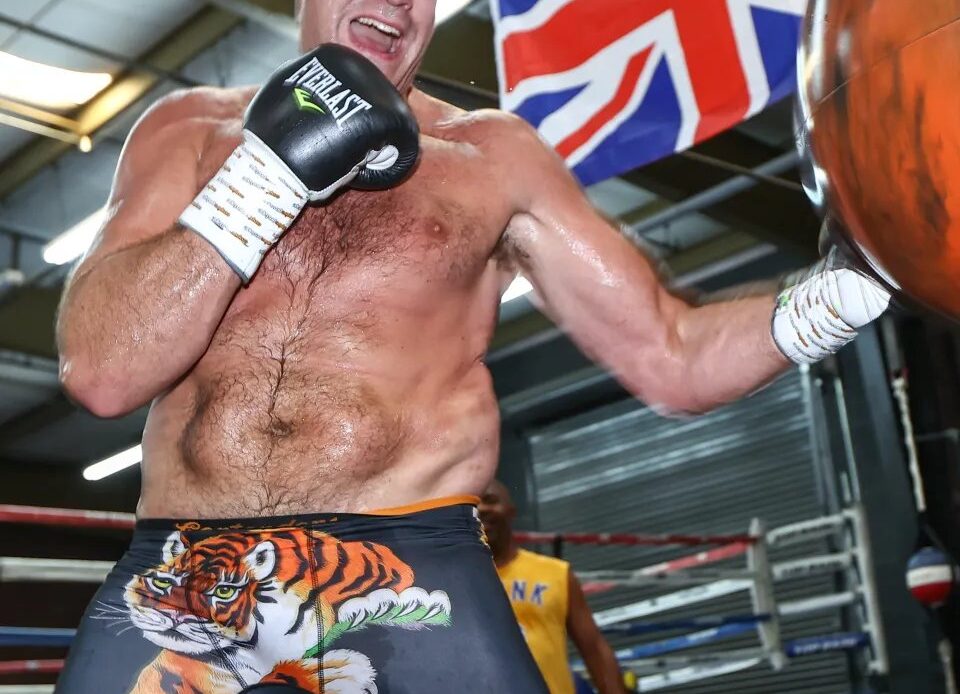In the world of boxing, few figures command as much attention and admiration as Tyson Fury. Known for his towering presence, technical brilliance, and unrelenting determination, Fury has long been regarded as one of the greatest heavyweights of his generation. However, even legends face moments of doubt and vulnerability. Recently, Tyson Fury shared that he almost retired after losing to Oleksandr Usyk but affirmed that he would defeat his opponent in the rematch: “I will train hard to defeat him, just like I did in Wilder 2.” This revelation not only sheds light on Fury’s emotional journey but also underscores his unwavering commitment to reclaiming his dominance in the ring. In this article, we will explore the details of Fury’s statement, analyze its implications, and delve into what this means for his legacy and future in boxing.
Before diving into Fury’s recent comments, it’s essential to understand the context surrounding his loss to Oleksandr Usyk. The bout between Fury and Usyk was one of the most anticipated fights in recent boxing history. Both fighters entered the ring with impeccable records and reputations as two of the best heavyweights in the world.
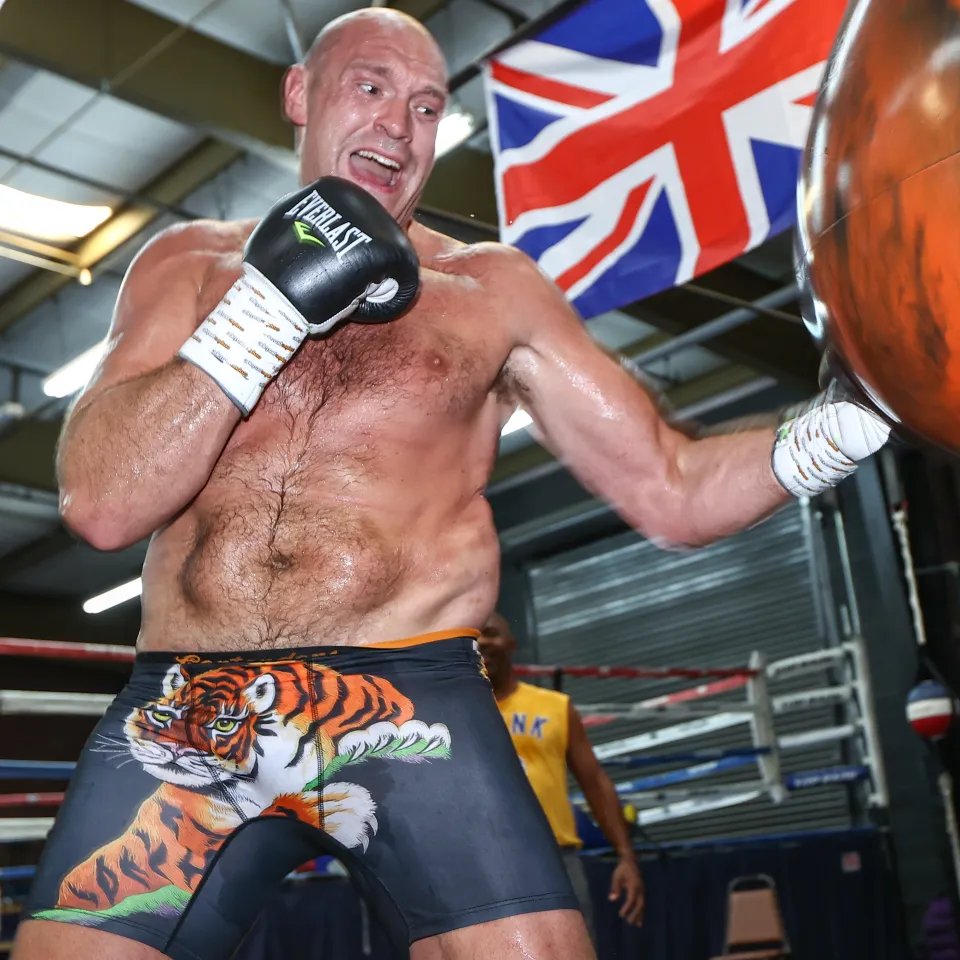
Tyson Fury, nicknamed “The Gypsy King,” had already established himself as a dominant force in the division. With his unmatched size, speed, and ring IQ, Fury had dismantled opponents with ease, including his iconic victories over Deontay Wilder. However, Oleksandr Usyk, a former undisputed cruiserweight champion, brought a unique set of skills to the heavyweight division. Known for his exceptional footwork, defensive prowess, and tactical brilliance, Usyk posed a formidable challenge for Fury.
The fight itself was a masterclass in strategy and skill. Usyk’s ability to control the pace and distance of the bout ultimately proved decisive, as he outboxed Fury over the course of the match. For Fury, the loss was a bitter pill to swallow—a rare setback in an otherwise stellar career. It left fans and analysts wondering whether the British giant still had what it takes to compete at the highest level.
Amidst the disappointment, Fury made headlines by revealing that the loss had pushed him to the brink of retirement. Yet, true to his resilient nature, he quickly shifted his focus to redemption, vowing to defeat Usyk in their highly anticipated rematch.
In a candid moment, Tyson Fury opened up about the emotional impact of his loss to Usyk. He admitted that the defeat left him questioning his future in boxing. “I almost retired after losing to Usyk,” Fury confessed, highlighting the depth of his frustration and self-doubt. For a fighter who has always prided himself on his mental toughness and resilience, this admission was both surprising and humbling.
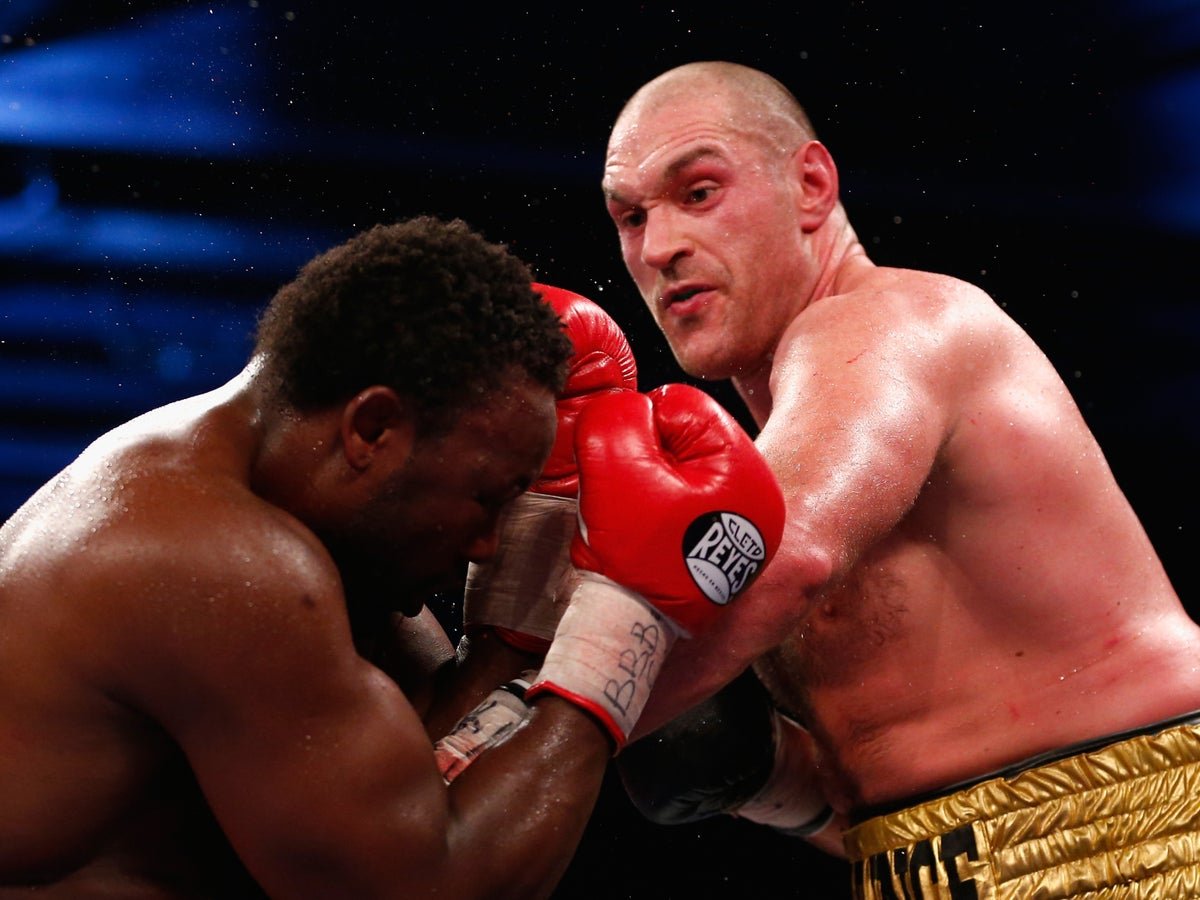
Fury went on to explain that the loss forced him to confront his vulnerabilities. “It wasn’t just about the fight itself,” he said. “It was about how I felt afterward—like maybe I didn’t have anything left to give.” These words reveal a side of Fury that fans rarely see: the human behind the larger-than-life persona. Despite his outward confidence and bravado, Fury is not immune to the pressures and challenges that come with competing at the highest level.
However, Fury’s story is one of perseverance. Instead of succumbing to despair, he channeled his emotions into motivation. “I realized that I’m not done yet,” he declared. “I still have unfinished business, and I owe it to myself and my fans to give it another shot.” This mindset reflects Fury’s trademark determination and refusal to back down, even in the face of adversity.
To ensure success in the rematch, Fury has outlined a rigorous training regimen designed to address the weaknesses exposed in his previous bout with Usyk. “I will train hard to defeat him, just like I did in Wilder 2,” Fury stated, drawing parallels to one of the defining moments of his career.
For those unfamiliar with Fury’s history, his second fight against Deontay Wilder is widely regarded as a turning point in his career. After a controversial draw in their first encounter, Fury returned with a vengeance, delivering a devastating knockout in the seventh round. The victory not only solidified Fury’s status as a top heavyweight but also demonstrated his ability to adapt and improve under pressure.
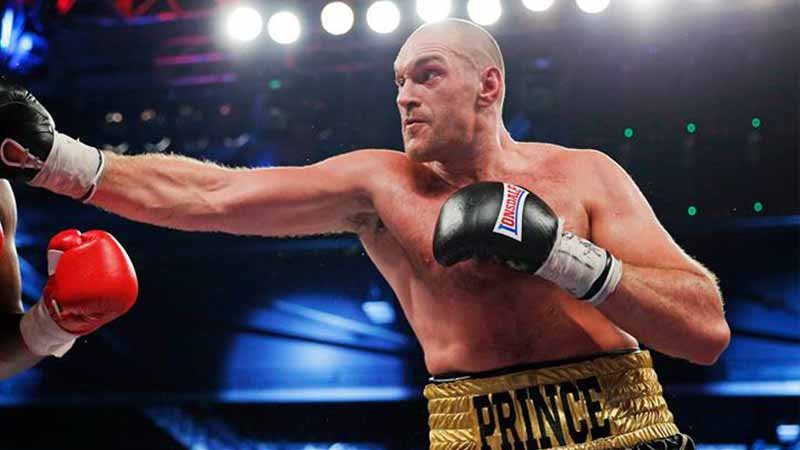
Fury’s plan for the rematch against Usyk revolves around three key areas:
**Improved Footwork and Movement:** One of Usyk’s greatest strengths is his ability to control the ring with precise footwork and angles. To counter this, Fury has pledged to enhance his own movement, ensuring he can cut off the ring and close the distance more effectively.
**Enhanced Conditioning:** Fury acknowledged that his stamina may have been a factor in the first fight. “I need to be in peak physical condition,” he said. “There’s no room for error this time.” By focusing on cardiovascular endurance and overall fitness, Fury aims to maintain his energy levels throughout the bout.
**Mental Preparation:** Beyond physical training, Fury emphasized the importance of mental fortitude. “Boxing is as much a mental game as it is a physical one,” he explained. “I need to stay focused, calm, and confident, no matter what happens in the ring.”
By channeling the same intensity and dedication that led to his victory over Wilder, Fury believes he can turn the tables on Usyk and reclaim his place at the top of the heavyweight division.
The rematch between Tyson Fury and Oleksandr Usyk holds significant implications for both fighters and the sport of boxing as a whole. For Fury, the stakes could not be higher. A victory would not only erase the sting of his previous loss but also reinforce his claim as the premier heavyweight of his era. Conversely, a second defeat could raise questions about his ability to compete with the elite fighters in the division.
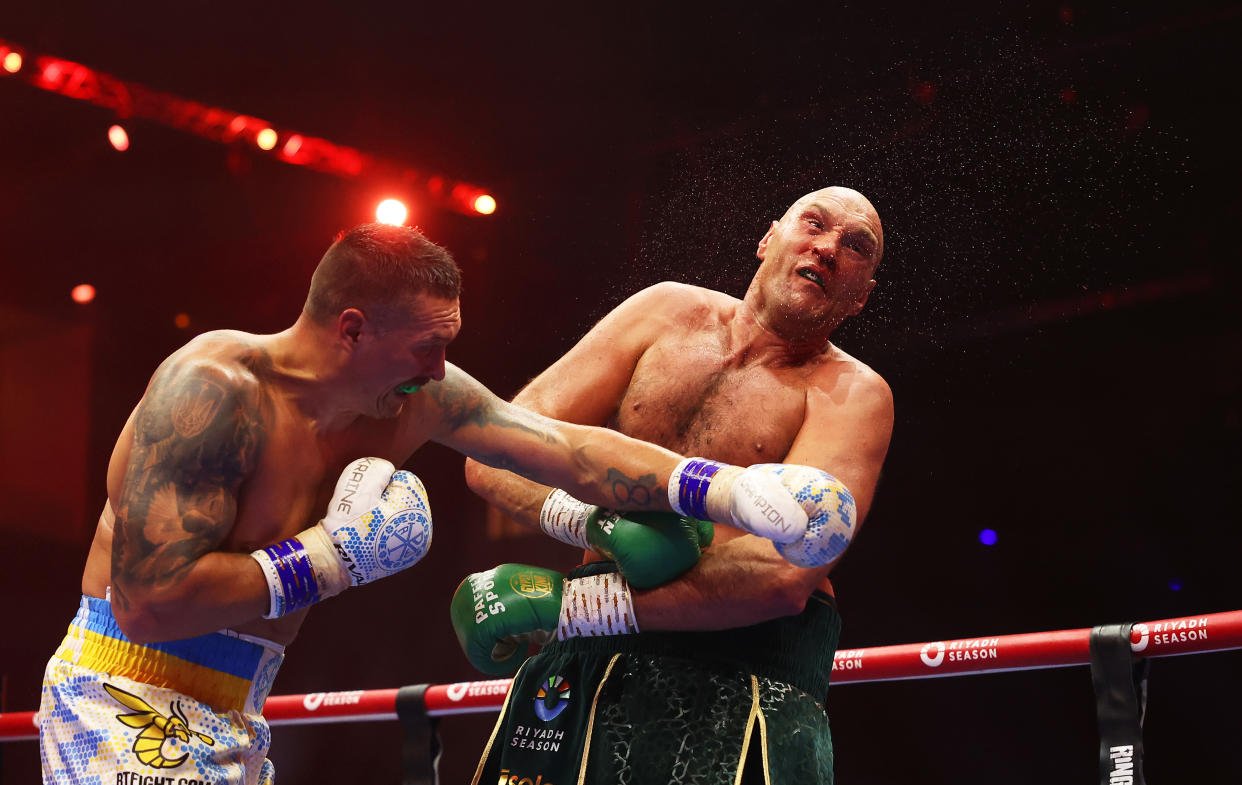
For Usyk, the rematch represents an opportunity to cement his legacy as one of the greatest heavyweights in history. Already celebrated for his achievements in the cruiserweight division, a second win over Fury would further solidify his status as a dominant force in boxing.
On a broader level, the fight highlights the unpredictable nature of the sport. In boxing, even the most accomplished fighters are vulnerable to setbacks and surprises. The rematch between Fury and Usyk serves as a reminder that greatness is not defined by perfection but by the ability to overcome adversity and rise to the occasion.
Beyond the individual narratives of Fury and Usyk, their rematch reflects broader trends and challenges within modern boxing. One key issue is the increasing competitiveness of the heavyweight division. With multiple champions and top contenders vying for supremacy, it has become increasingly difficult for any single fighter to dominate the landscape. This fragmentation has led to confusion among fans and diluted the overall appeal of the sport.
Another pressing concern is the role of promoters in shaping the narrative around fights. In an era dominated by pay-per-view revenue and social media hype, promoters often prioritize spectacle over substance, creating mismatches or delaying unification bouts in favor of more profitable matchups. To address this, governing bodies must work to streamline the championship process and ensure that the best fighters face each other regularly.
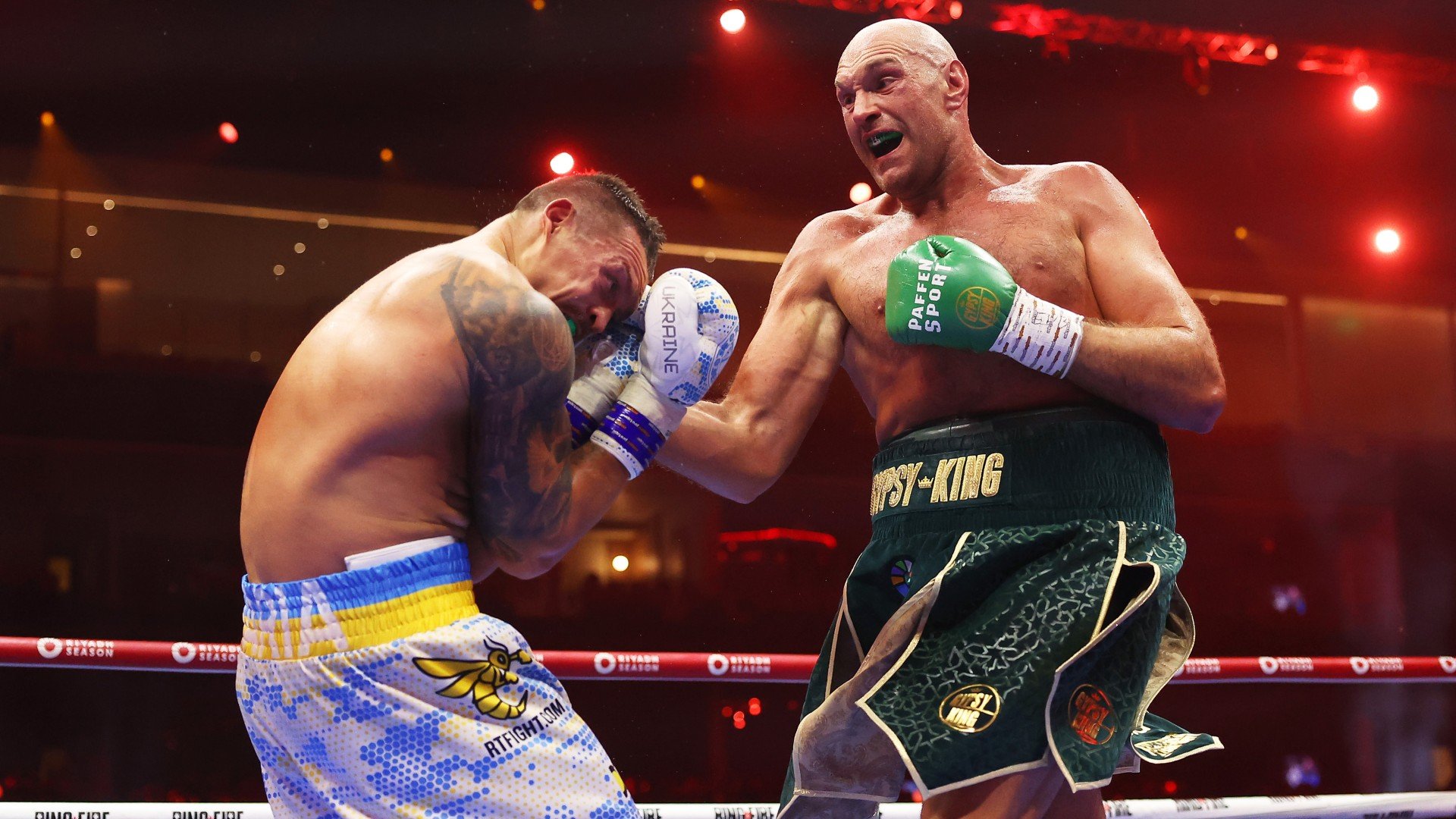
Finally, boxing must adapt to changing audience preferences. Younger generations are drawn to fast-paced, action-packed sports like mixed martial arts (MMA), which offer a different kind of excitement compared to traditional boxing. To remain relevant, boxing needs to embrace innovation, engage new audiences, and leverage technology to enhance the viewing experience.
Tyson Fury shared that he almost retired after losing to Usyk but affirmed that he would defeat his opponent in the rematch: “I will train hard to defeat him, just like I did in Wilder 2.” These words encapsulate Fury’s resilience, determination, and unwavering belief in his abilities. While the road ahead may be challenging, Fury’s commitment to redemption serves as a testament to his character and passion for the sport.
For fans, the rematch promises to deliver everything they love about boxing—drama, skill, and heart. Whether Fury can reclaim his throne or Usyk solidifies his dominance remains to be seen, but one thing is certain: the sweet science continues to captivate and inspire. Stay tuned—the next chapter in boxing history is always just around the corner.
